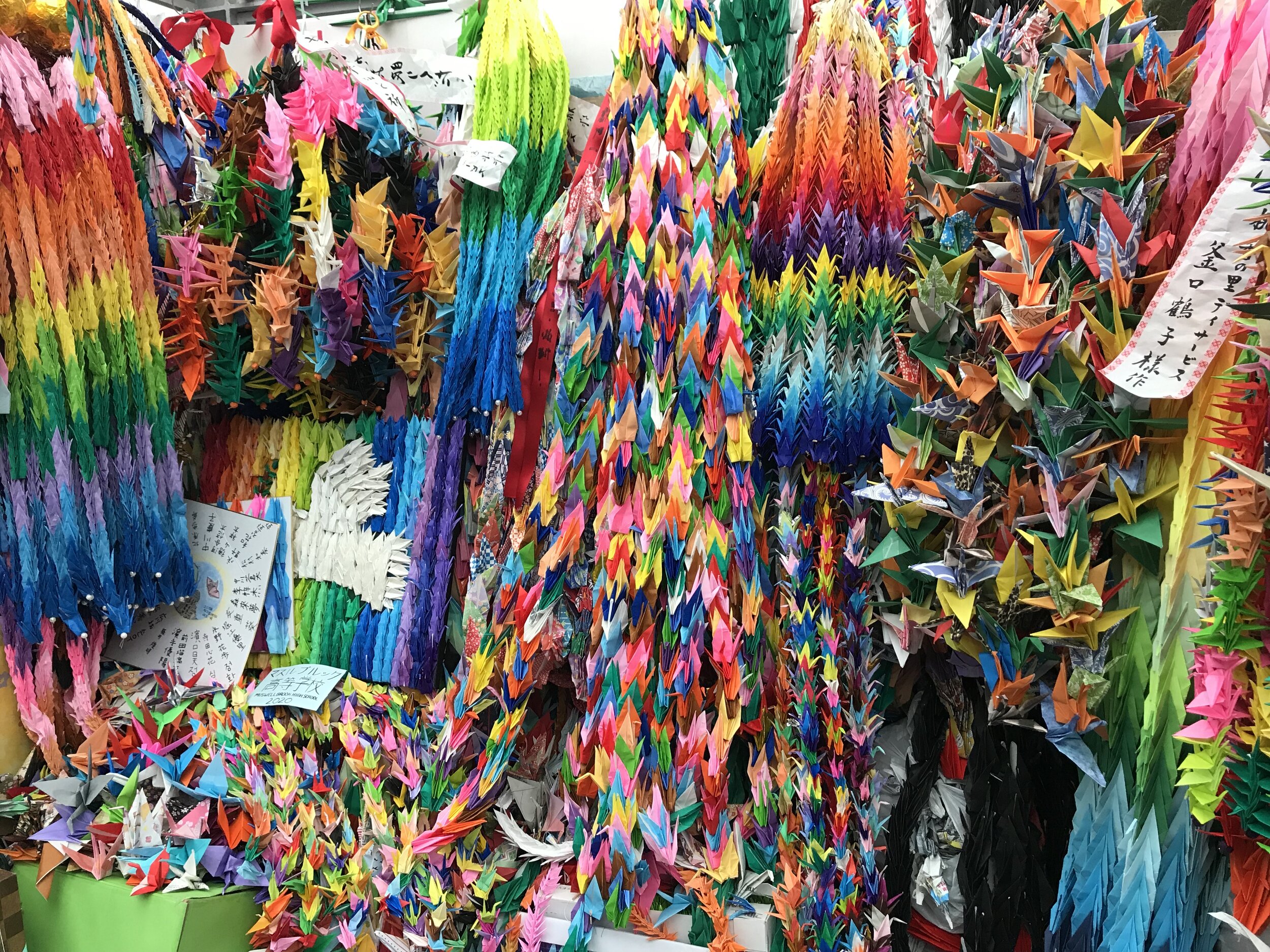
Hiroshima, Japan
The Hiroshima Fellow
UNITAR gathering at the Atomic Bomb Dome in the Peace Memorial park.
Green Legacy activities in front of an A-bomb survivor tree.
Annelise Giseburt ‘16 and friend out for Hiroshima style okonomiyaki
Annelise Giseburt ‘16 at a UNITAR event in Tokyo.
Spring view of Hiroshima.
This two-year, full-time Fellowship allows the Fellow to be a part of a United Nations agency and two non-governmental organizations (NGOs) in Hiroshima. At the United Nations agency, the Fellow will work with an international staff to organize programs that aim to effect positive change in war-ravaged areas of the world. In two small NGOs, the Fellow will work with local staff on a smaller scale to reach out to the world with educational projects.
About Hiroshima
Hiroshima is the largest city in the Chugoku region of Japan and has a population of approximately one million people. It carries the historical significance of being one of the two Japanese cities devastated by atomic bombs during World War II. The city was declared as the City of Peace by the Japanese parliament and boasts a distinctive culture focused on peace and education.
About United Nations Institute for Training and Research, Green Legacy Hiroshima, and Asian Network of Trust -Hiroshima
United Nations Institute for Training and Research (UNITAR) is a United Nations agency dedicated to delivering innovative training and conducting research on knowledge systems focusing on post-conflict reconstruction, international peace, and human security. One of their major initiatives is the Afghanistan Fellowship Programme, a seven-month long training program which sees 60 Afghan civil servants, academics and practitioners paired with mentors from around the world in an innovative blended-learning environment.
Asian Network of Trust-Hiroshima (ANT-Hiroshima) draws its inspiration from the experience of the A-bomb survivors who, with international support, worked to rebuild their shattered city in a spirit of peace and reconciliation. In a similar spirit, ANT-Hiroshima is involved in a range of relief, reconstruction, and peace-building projects in a number of countries, including Afghanistan, Pakistan, Nepal, and the Philippines
Green Legacy Hiroshima, a voluntary, citizen-driven initiative that is institutionally supported by UNITAR and ANT-Hiroshima as well as other local institutions, seeks to safeguard and spread worldwide the seeds and saplings of Hiroshima’s A-bomb survivor trees. Since its founding in 2011, Green Legacy Hiroshima has established partnerships in more than 25 countries.
The Fellowship
The Fellow can expect the responsibilities at these organizations to change as the Fellowship progresses. In the beginning the Fellow will master basic operational tasks working with UNITAR before moving up to more advanced duties.
Responsibilities:
At UNITAR - Assist the director and staff with events, programs, and other initiatives; support program participants (about 50 participants from 20 different countries for each program) during their stay in Hiroshima; undertake administrative tasks, maintain databases, mailing lists and other contacts for projects; conduct research; draft and edit written communications
At ANT-Hiroshima – engage in peace-building education in Japan and for audiences abroad
At Green Legacy Hiroshima – publicize the work of the organization through writing and e-communications, work with the staff to disseminate the seeds and saplings worldwide, engage with the local community to gather seeds and nurture saplings
Skills/Competencies:
Excellent interpersonal skills and the ability to work in an international environment
Effective time management to meet designated deadlines
Strong appreciation of teamwork and sharing
Excellent writing and research skills
Ability to be flexible – may be called upon to work on weekends and in the evenings.
Strong desire to become fluent in verbal and written Japanese
Self-motivated and outgoing
What does a strong candidate for the Fellowship to Hiroshima look like?
The Fellow for this position will need to be respectful of people from diverse cultural and ethnic backgrounds, and interested in global relations and social issues. Highly qualified applicants for this Fellowship will have studied abroad in Japan and are knowledgeable in Japanese history and society, and the historical relationship between the U.S. and Japan. Applicants will need a minimum of two years of college-level Japanese language training. The Fellow will be required to take an intensive summer Japanese course in Japan preceding the Fellowship. The common language in the UNITAR office is English, but work is conducted in Japanese at ANT-Hiroshima and Green Legacy Hiroshima.






